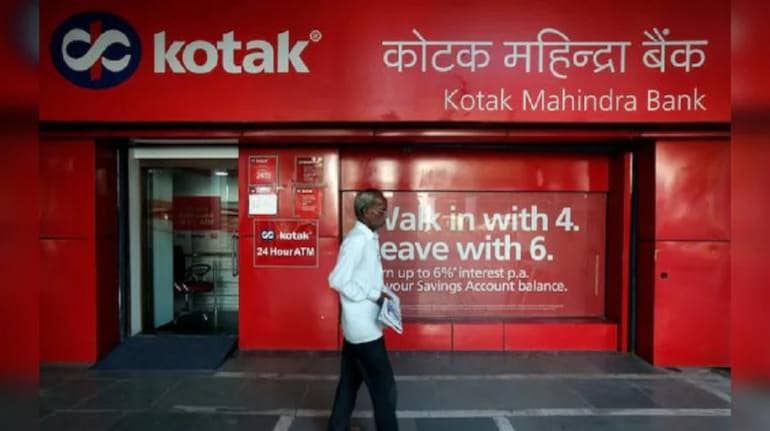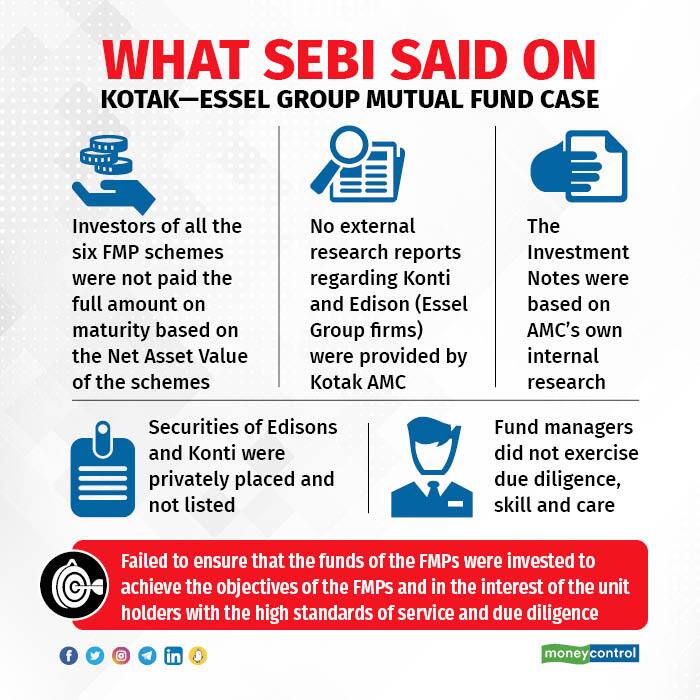



On September 23, Kotak Group announced a raft of changes in its asset management team. It promoted Lakshmi Iyer as CEO of the investment advisory business at Kotak Investment Advisors Limited (KIAL). Deepak Agarwal was promoted to lead the fixed income Investment team as Chief Investment Officer, Fixed Income, at Kotak Mahindra Asset Management Co while Abhishek Bisen was elevated to Head, Fixed Income. These changes will take effect on November 1, 2022.
In normal circumstances, this would have passed off as a routine organisational recast. Except, it wasn’t.
These three are among the officials penalised by market-regulator Securities and exchange board of India (Sebi) just three months ago for flouting rules pertaining to mutual funds. Kotak subsequently challenged the Sebi order issued in Securities Appellate Tribunal (SAT) and secured a stay on August 24. The case is up again for hearing in November.
What is the case about?
The case pertained to six Fixed Maturity Plan (FMP) schemes that matured in April and May 2019, which held investments in debt securities issued by Edisons Utility Works and Konti Infrapower and Multiventures, belonging to the Essel Group. The debt securities were secured by pledge of equity shares of Zee Entertainment Enterprises Ltd by its promoter Cyquator Media Services.
The company has contended that it acted in the best interest of investors by extending payment deadline on the six fixed maturity plans. Sebi thinks otherwise. Its order issued on June 30 is elaborate on the rationale why the said officials are worthy of penalty in this case. It has identified more flaws on the part of fund managers apart from deadline extension.
When contacted, Kotak declined to comment on Moneycontrol’s questions. It only said the matter is “sub-judiced”.
“As regards the order issued by the Securities Exchange Board of India (“SEBI”) with respect to Fixed Maturity Plans of Kotak Mahindra Mutual Fund (KMMF) against Kotak Mahindra Trustee Company Limited (“KMTCL”) and some employees of Kotak Mahindra Asset Management Company Limited (“KMAMC”), in response to an appeal filed in the matter, the Securities Appellate Tribunal (“SAT”) issued a stay order on August 24, 2022. The matter is now sub judice,” a Kotak spokesperson said.
Did Kotak act right?
The promotions of persons under the regulator’s shadow has triggered a debate. In the spirit of the golden standards of corporate governance, was it proper on the part of a well-known financial conglomerate to reward officials with promotions shortly after they were penalised by the regulator?

Jayant Thakur, securities law expert, said when an adverse order is passed by a regulator against a senior official, the logical course under good corporate governance is to either remove such person or put him under suspension or send him on leave, etc. as the circumstances require. But the firm can choose not to take any action if it disagrees with the regulator on facts, Thakur said.
“An adverse order by a regulator by itself does not mean a company also has to take strict action against the official. The company has to take a considered legal and substantive view which would vary depending on the facts,” Thakur said.
A former executive director at the markets regulator, Sebi too spoke partly on the same lines.
“The decision taken on the FMP plans was that of the company and not any individuals. The regulator had to penalise someone. But there is no reason for the company too to slap penal actions on the officials by denying promotions as it is not any individual’s fault,” said the official who spoke on condition of anonymity.
By refusing to take punitive action against the officials penalised by the market regulator and even promoting them, Kotak appears to be sending a signal that strongly disagrees with the regulatory action.
Of course, the promotions are not in contravention of any law. But it does raise questions on the corporate governance standards.
To understand why, we need to look at the facts in the Sebi order.
Devil in the details
According to the Sebi order, it was observed that Kotak AMC entered into an agreement with promoters and other promoter entities of Essel Group to extend the maturity of securities of various Essel Group entities to September 30, 2019. Consequently, investors of all the six schemes were not paid the full amount on maturity based on the Net Asset Value of the schemes, leading to a Sebi examination. The company later paid every investor in full with interest for delayed payment.
The Sebi order clearly implicates the Kotak officials in the case.
The investment plan was approved by Nilesh Shah, Lakshmi Iyer and Gaurang Shah. Sebi said no reference was made to the financials and operations of the issuers in the investment plan. Investment decision was only based on analysis of collateral (Zee). Initial security cover was of 1.6 times by pledge of shares Zee, which was to be maintained as 1.5 times thereafter. There is, however, no rationale as to how 1.6 times security cover is adequate collateral/ coverage, Sebi said.
What was the nature of the transaction?
This particular transaction has been referred to as Loan against Shares where the collateral was in form of pledge over shares of Zee. Kotak’s investment committee was of the view that repayment of its exposure was to be funded through a refinance. According to the Sebi order, the investment committee took comfort from the reputation and track record of Essel Group in general and fundamentals, liquidity and performance of shares of Zee.
It was alleged that the investments are not based on financials or the business operations of the issuer companies i.e. Konti and Edison. Also, the investments were purely done based on the security provided by the Cyquator, a promoter group company, through pledge of shares of Zee Entertainment and the external rating of a Credit rating Agency (CRA), Sebi said.
Thus, from the Sebi order, it is quite clear there are clear violations of rules pertaining to mutual funds on the part of erring officials.
The haste
The haste with which Kotak has promoted officials has also come under scrutiny. Shouldn’t the company have waited until SAT cleared its officials from the Sebi charges? The case has only been stayed—not overturned.
“It would be great if companies and other entities that are listed set up a due process by independent directors, trustees etc who give their recommendations, taking legal advice if necessary,” Thakur said. “On such sensitive issues of governance. And keep reviewing this till the issue reaches a finality with SAT or above,” Thakur added.
In the minds of lay investors, such actions could potentially raise doubts and even suspicion about corporate governance standards preached by firms, according to corporate law experts.
Discover the latest Business News, Sensex, and Nifty updates. Obtain Personal Finance insights, tax queries, and expert opinions on Moneycontrol or download the Moneycontrol App to stay updated!